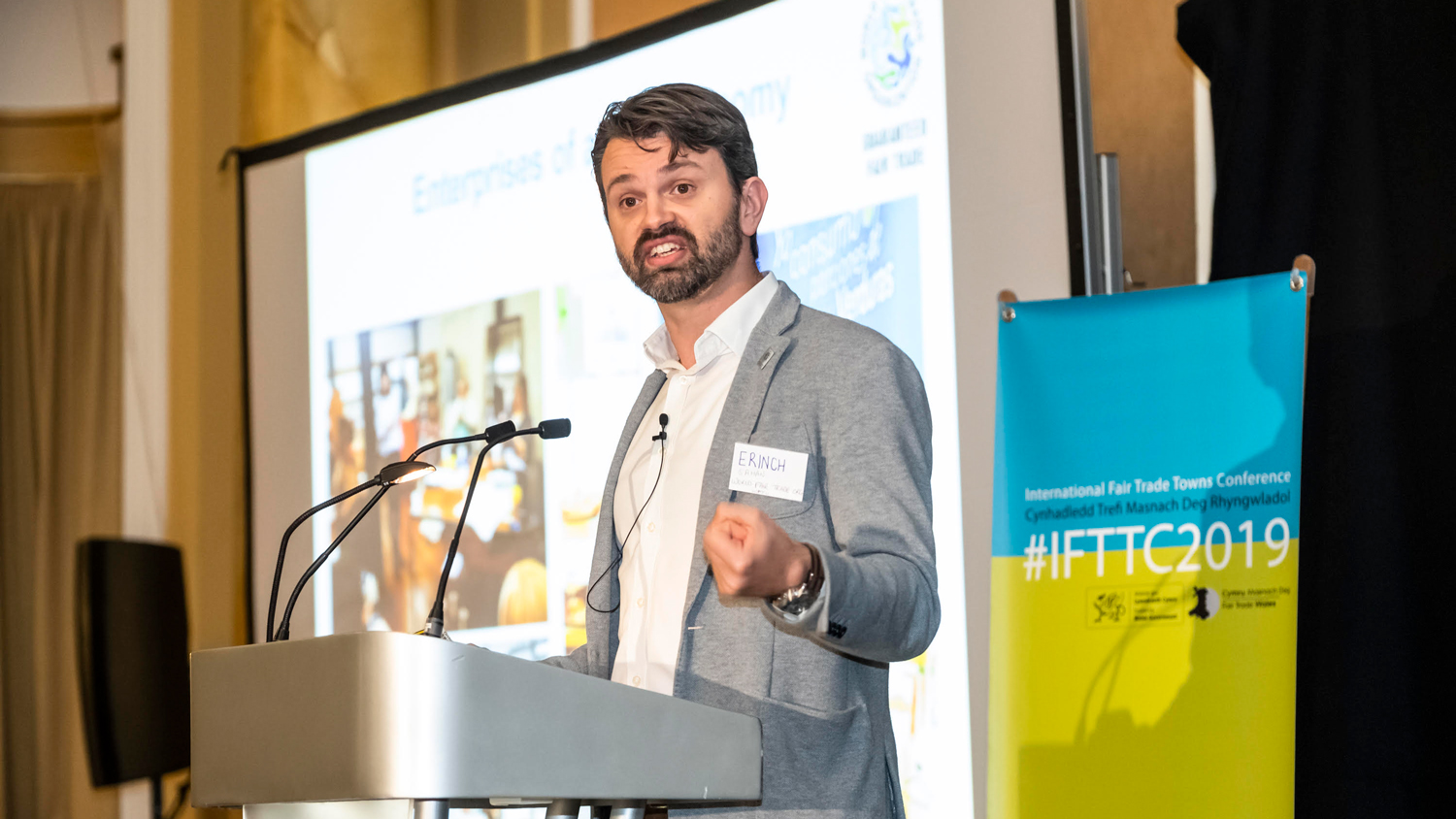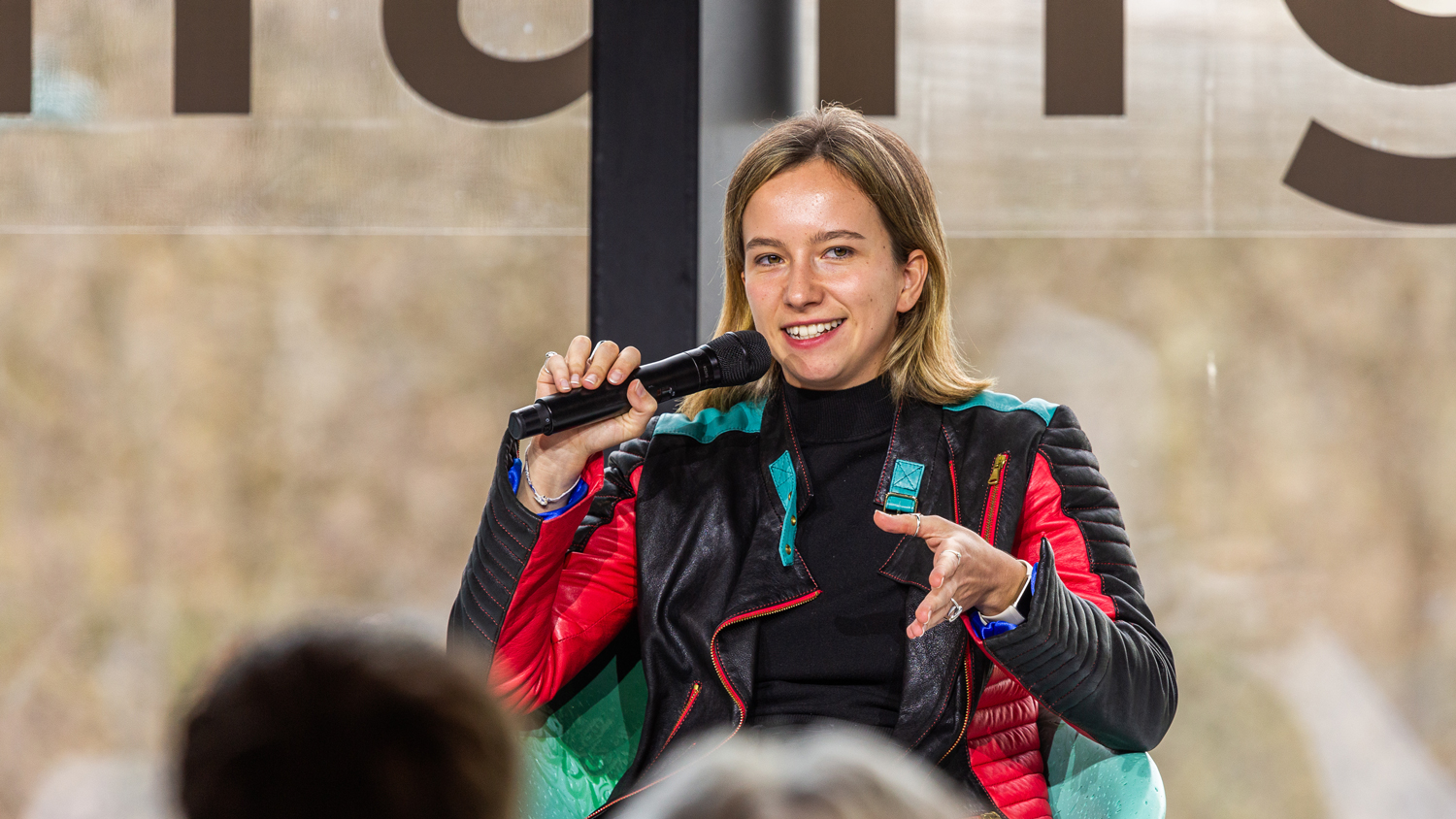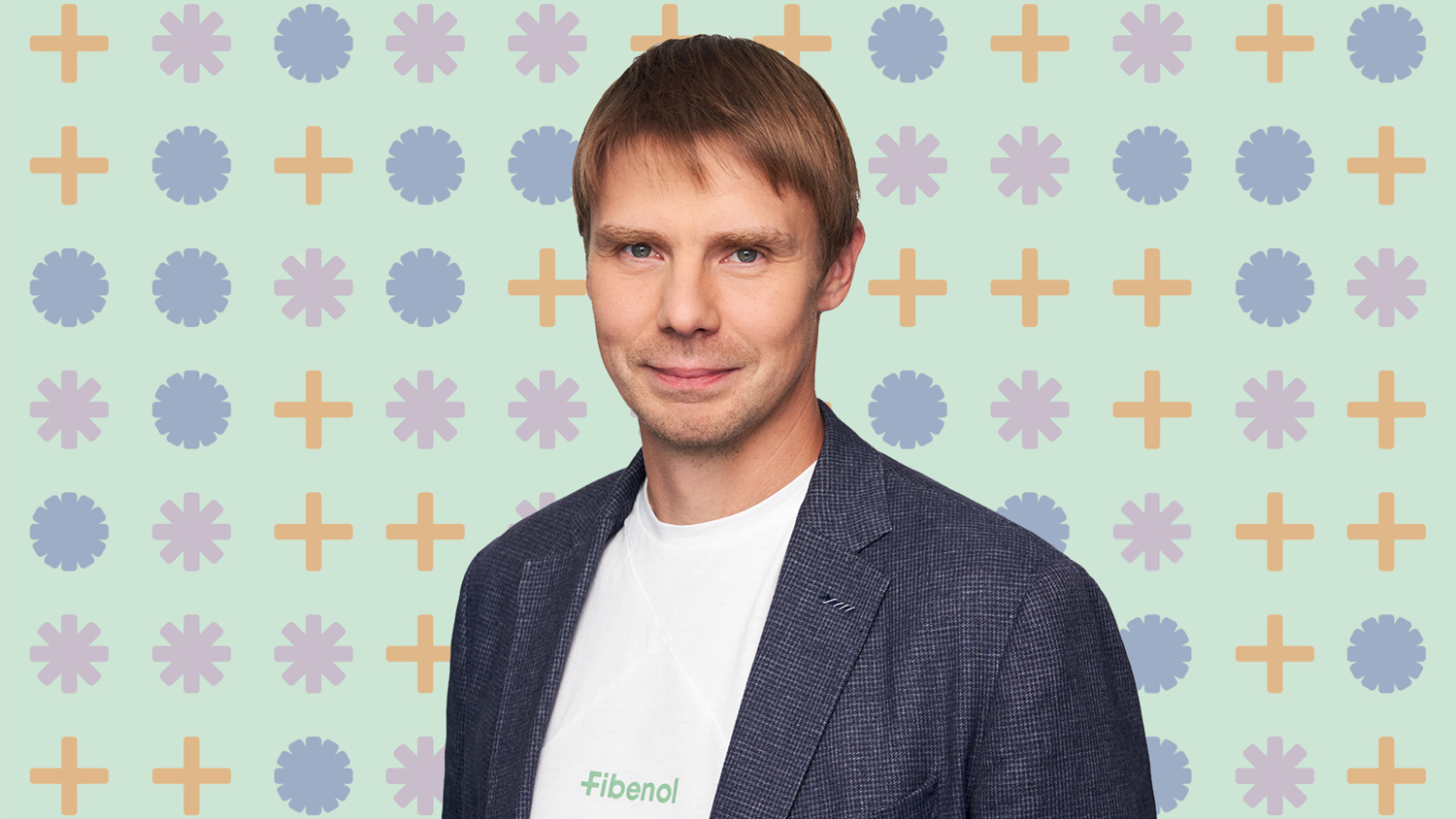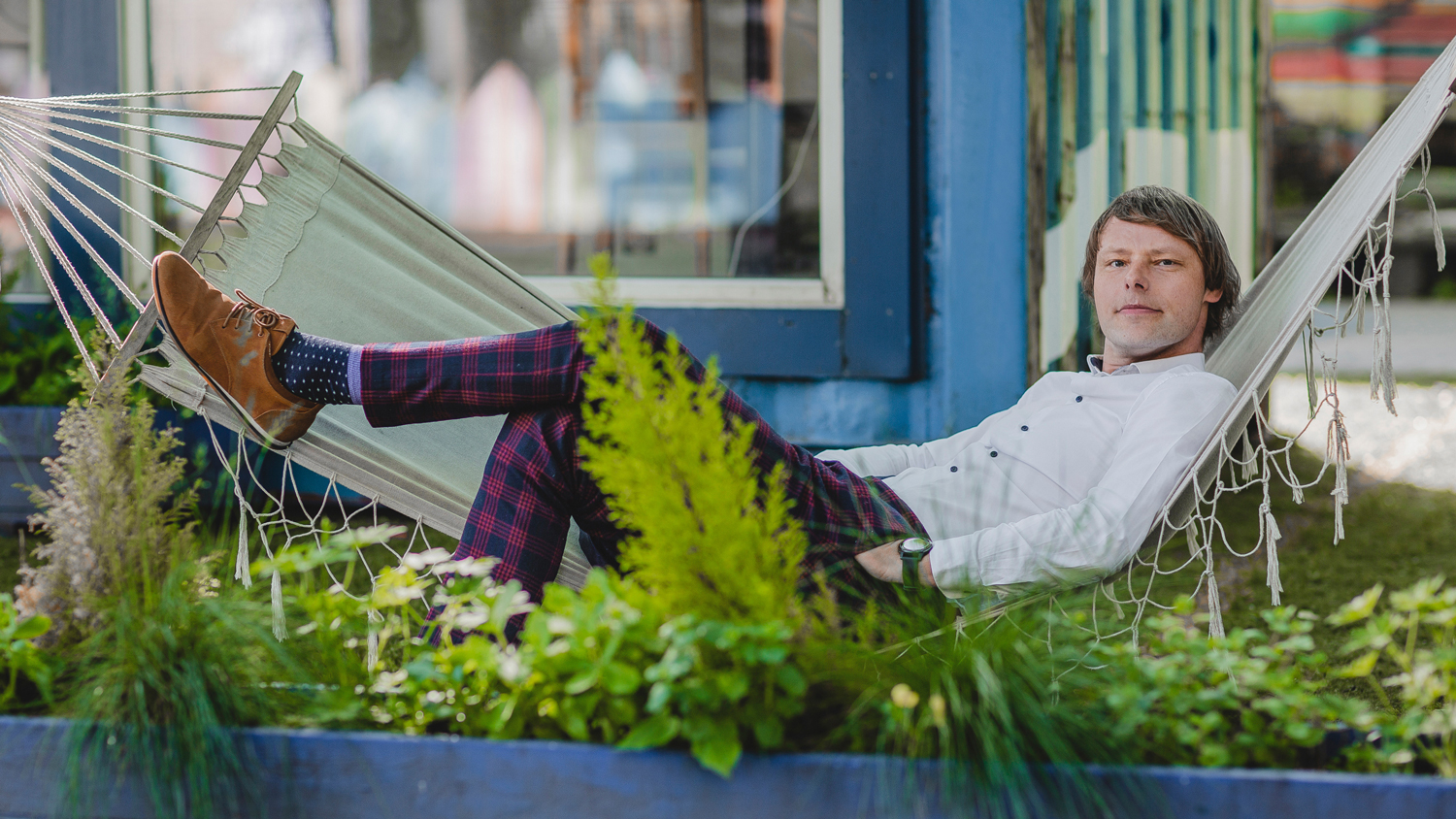Sven Nuum is an entrepreneur and marketing expert who, nearly a decade ago, along with a friend, launched a revolution of smoothies enriched with Boost Yourself superfood blends, opened the Nullist marketing school, and introduced the highly popular online GraceFit workouts. In addition, Sven, also one of the speakers of Impact Day 2024, mentors several Estonian individuals and businesses to help them achieve the life they’ve always dreamed of.
What does sustainability mean to you personally?
For me, sustainability means being able to be sustainable myself – in my thoughts, actions, and deeds. It means having the energy to do the work, to have enough energy to pursue all the things that inspire me, and to be able to inspire and encourage others to live the life they want. Because only then can they, in turn, be better individuals and grow through greater awareness, enabling themselves to have better living conditions.
In everyday life, an essential element of sustainability for me is clean food (Sven actually studied to be a chef before diving into the world of entrepreneurship). I prefer as little “factory food” as possible, which has been heavily processed and therefore lost most of its nutrients. My goal is to have as much fresh food on the table as possible.
For the past 10 years, I’ve been drinking smoothies every day, for example. It’s a good, simple, and healthy meal that takes only five minutes to prepare. You can put berries, fruits, vegetables, various seeds, etc., into the smoothie. It’s an easy hack that anyone can do without much effort. Another good tip is an air fryer, where tasty foods are prepared quickly and without much hassle.
The topic of food touches me personally because years ago, I had a lot of health problems. It was purely due to poor nutrition – my diet was too acidic at the time, but eating fresh produce helped balance it out. We often think that store-bought food is good and nutritious, but unfortunately, in most cases, it isn’t – 80 percent of the food on store shelves is actually rubbish. It’s filled with sugar, other chemical sweeteners, and flavor enhancers that actually exhaust the body.
I urge everyone to carefully read labels in stores. Sometimes you may be surprised at what’s put into food – it’s sad and actually irritating. Personally, I prefer to buy food that is minimally packaged, isn’t highly processed, and rather clean, fresh, and grown in fields, greenhouses, or in the earth. Whenever possible, I buy most of my groceries from the market. Eggs should also be either organic or at least from free-range chickens; I prefer grass-fed beef. Every day, such choices need to be made so that we ourselves are sustainable.
What is the role of businesses in promoting sustainability, and what do you think are the best ways to achieve this?
Businesses have a very significant role and responsibility because all those packages and massive production, how materials are handled and used, what values guide the choices made in the company, etc., all of this has a tremendous impact. Considering the mass production world we live in today, where there’s plastic everywhere and too much of it.
Just the other day, as I was walking, I was thinking about dog owners walking their pets, how they take them out several times a day and each time they have to put dog waste into a separate plastic bag before throwing it in the trash. And if you think about it, all dog owners around the world do this every day. Of course, this is necessary too, but we should come up with a solution that helps address this and similar problems. And here, companies have a significant role to play in taking steps towards solutions.
For example, one of my friends makes reed straws in Saaremaa. This is also a very important niche because think about how many plastic straws are used worldwide. All such, albeit small, but nevertheless very important initiatives make us think and analyze our behavior.
At some point, I used to buy Värska water every day because I liked the taste, but I don’t do that anymore today. Now, I put Himalayan salt into my own water, and the result is just as good, and a huge number of plastic bottles go unused. Everyone has a responsibility to our planet, but it starts with entrepreneurs because we, as consumers, buy the things they produce.
What do you think is the key to a sustainable business model, and how does it differ from the traditional business model?
The first important thing here is that the company’s business model itself must be sustainable. And what is created, the product itself, must be sustainable and necessary for humanity. It is also very important how the company treats its employees, whether and how management cares for and values them and what kind of work environment it creates. I believe that if the work environment is supportive and caring, then people there will make more effort to have a greater impact on the planet with their actions. It is important to me that the employee as a person is cared for and that their development is invested in. Raising general awareness is very important because companies have the opportunity to educate their people.
And then, at some point, everyone seems to take a common direction, whether it’s through sustainability or through how products in some other way make people’s lives better. And when these things are in place – the company’s business model works and the work environment is good – only then can you start thinking more about other topics and directing more resources towards them. If there are other problems in the company that need to be addressed first, then it’s difficult to pursue a sustainable agenda because priorities lie elsewhere.
Can you highlight a good example of a successful sustainability project or initiative that you have been involved in or observed?
The Impact Day festival itself is already an example of a successful initiative reflecting the field of sustainability. And although there are many interesting presentations and topics circulating globally, I’m not actually very actively involved in them. Many of my own initiatives, for example, are digital businesses where there isn’t much waste or production waste.
What role does marketing play in making the world more sustainable?
Marketing plays an important role in making the world more sustainable by increasing awareness, changing consumer behavior, and creating sustainable brands. Through campaigns and messages, companies can educate consumers about environmental issues and encourage them to make informed and environmentally friendly purchasing decisions. In turn, consumers’ choices encourage companies to think more about sustainable products and solutions.









